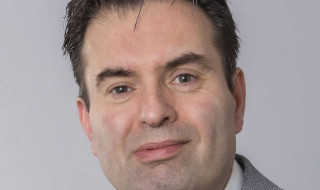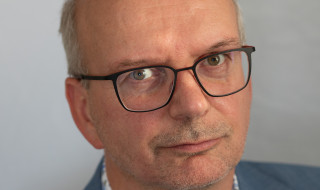Digital Competence Centres let institutions collaborate more intensively
Digitising research requires expertise, which is scarce. Digital Competence Centres (DCCs) gather that expertise. Moreover, they make it easier for institutions to share knowledge and develop services together. It turns out, needs in this area appear to be widely shared.
The digital transformation of science offers huge opportunities. At the same time, more and more opportunities are available to researchers to make their data digitally accessible. But how should a researcher approach all this? For many, it is uncharted territory.
DCCs are the solution to this problem. At such a Digital Competence Centre, researchers get answers to their questions about collecting, storing and processing data. DCCs also identify areas for improvement and actively pursue them. Digitisation is an important development in all branches of science. Commissioned by the Ministry of Education, Culture and Science (OCW), NWO carries out a number of activities in the field of digital research infrastructure.
In 2020 and 2023, NWO held a grant round for the establishment or further development of LDCCs at all universities, UMCs, NWO and KNAW institute and universities of applied sciences. In addition, funds are made available to SURF for expertise and support of the DCCs. Among other things, SURF has organised calls for DCC consortium projects and pilots for this purpose.

Iwan Holleman, divisional director Information & Library Services, Radboud University
Multiple universities tackle challenges together
Three calls for proposals have now been held. A clear trend can be recognised, says Iwan Holleman, divisional director of Information & Library Services at Radboud University. "In the beginning, proposals were rather locally focused: initiators wanted to take a few steps within the DCC of one institution. Now you see that people want to tackle certain DCC challenges more integrally with several universities together or even with larger consortia." Examples include the development of a virtual research assistant or metadata standards.
Remarkably, the content of the proposals shows many similarities. So much so, that SURF advised several consortia to work together. Three consortia, each working on research repositories in a project, are now holding a serie of meetings in which they look at synergies and reuse of each other's knowledge.
Holleman thinks it is a good development. "A DCC not only gathers knowledge within an organisation, but also makes it easier to share knowledge between institutions and develop things together."
"Meanwhile, you see in the proposals that DCC challenges are being tackled more integrally, with multiple universities together or even larger consortia."
Holleman sees most activity in generic, local DCCs (LDCCs). Thematic DCCs (TDCCs), which focus on particular research domains, are still emerging. This also says something about the development of FAIR data management. "Findability and Accessibility you can manage well across the full breadth of an institution. But with Interoperability and Reusability, you often get deep into technology, such as specialised data formats. That is a next step, which requires cooperation across institutional boundaries."
Digital Competence Centres can differ in set-up and focus
There are big differences between DCCs, observes Jeroen Rombouts, Research Data Management coordinator at Erasmus University. "Some have only existed for a short time, while others have been active for years. The latter are usually set up as centres of expertise, with their own name. At other institutions, the DCC functions as a kind of virtual network of experts. Whether or not linked to an existing helpdesk with its own counter."

Jeroen Rombouts, Research Data Management coordinator, Erasmus University Rotterdam
The expertise a DCC must have, is therefore very diverse. Besides data management, it also involves software engineering and compute. And innovation in these areas is not the whole story. Rombouts: "In research data management, you often have to deal with grant conditions and legal agreements, for example about sharing data. Privacy is another, complex area of concern." With that said, most institutions have still placed their DCC with the UB or the ICT department. At some universities, these together form one unit.
Sharing knowledge and experience via IN-DCC platform
According to Rombouts, it is precisely this variety that provides many useful experiences. "What works, and what doesn't?" There is a platform where experiences are shared: IN-DCC. Rombouts co-chairs this DCC implementation network." IN-DCC organises three types of meetings, usually bi-monthly to quarterly:
- For coordinators of DCCs, to share information and see where opportunities for cooperation exist.
- Larger meetings on more operational topics, such as links between helpdesk systems. These are also attended by relevant data stewards and policymakers.
- Core group sessions to set the agenda for IN-DCC. With representatives from the UMCs, hbo, the three major research domains, SURF, LCRDM and so on. In their sessions, needs and activities of the constituencies are exchanged.
"Expertise in data management is scarce, so we need to train a lot of people."
Actions catch on: DCC Spring Training Days and a liaison officer
IN-DCC came up with the initiative for the popular 'DCC Spring Training Days' at SURF for data stewards and researchers. "Expertise in data management is scarce, so we need to train a lot of people," explains Rombouts.
Another action is a 'liaison officer' who makes a round along the DCCs to identify shared priorities and challenges and translate them into a shared vision and strategy. "And link institutions where possible," he says. That will happen over the next two years.
Great results
In the meantime, nice results are already coming out of the 2023 projects. To give you a hint, let's mention the Yoda Toolkit project. Yoda is an open-source application developed by Utrecht University. The application was so promising that a number of other universities, including the VU, also wanted to use it. From that shared need, the Yoda Consortium was set up and a special toolkit was developed from the Digital Competence Centres to help with step-by-step implementation.
The open-source application developed by Utrecht University was so promising that other universities wanted to use it too.
Finally, Rombouts has some advice for the readers of this article: "DCCs have a lot of knowledge about the practice of RDM. As policymakers, we could make good use of that too."
Two examples: textmining and FAIR bootcamp
What did the 2022 call-for-proposals achieve? We take a closer look at two initiatives.
Textmining in Dutch-language medical text
Five of the seven university medical centres collaborated on this project, says Mark Snackey, product owner for text mining and other products at the UMC Utrecht. A hospital doctor's interview report consists of free text and is full of jargon and abbreviations. UMC Utrecht developed software to still extract targeted information from it that can not only be analysed, but also anonymised and shared, in line with FAIR principles.
The software is open source. This made it possible to adapt the tools to the needs of the other hospitals in consultation. In doing so, it turned out that the necessary expertise is scarce within UMCs. Another hurdle was setting up the consortium. Snackey: "We had to draw up documents that then had to be studied and signed everywhere."
By the end of the year, the software had been satisfactorily implemented at all participants and, in many cases, tested on test cases. Not only by the four consortium members - Utrecht, Rotterdam, Nijmegen and Groningen - but also by Amsterdam. Leiden is now also interested. Snackey: "It's a niche, so cooperation is the only way forward."
Bootcamps: Towards Circular Science
Another example is a pilot by Maastricht University. "There are all kinds of books on the concept of FAIR," says Pedro Hernández, data stewardship services coordinator. "But these are mainly theoretical in nature. Researchers who need to make their data FAIR prefer, in my opinion, to see concrete examples."
These are therefore central to the course book that Hernández and his colleagues developed. "Students need to give themselves an idea of what FAIR means. Especially the I of interoperability." The process spans a week. "In our test bootcamp, everyone was able to tell well what interoperability means," Hernández notes with satisfaction.
The course book is already being used by staff from other universities. Anyone may modify it without restriction, as it is based on the open source library. Hernández does not find the principles behind FAIR complicated. According to him, they are very similar to SEO: the techniques for getting high in Google rankings. "Your work just has to be easily findable and usable. Because otherwise it might as well not exist."
Text: Aad van de Wijngaart
'Digital Competence Centres let institutions collaborate more intensively' is an article from SURF Magazine.
Questions following this article? Mail to magazine@surf.nl
